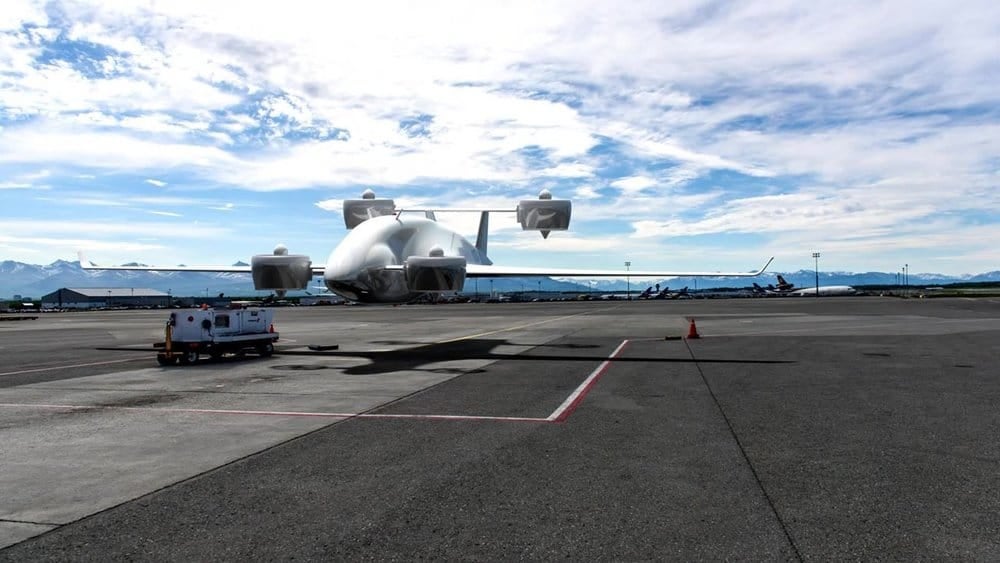
Over the last few years, the air freight industry is getting a makeover with start-ups and incumbent aircraft manufacturers experimenting with vertical landing and take off (VTOL) aircraft – both manned and unmanned – to reduce emissions and improve operational efficiency. Though the technology behind such systems has existed for many years, they remained confined to the defense sector.
The technology has since graduated from its exclusivity, and is now venturing into more commercial applications that could positively impact freight movement. The Sabrewing Aircraft Company is one such start-up that designs and manufactures VTOL unmanned aerial vehicles (UAVs) that can be used to transport cargo across a region.
“Most of the start-ups in the urban air mobility space are designed to carry passengers rather than freight. Air cargo is a completely different animal compared to manned aircraft. We’ve been working on this for many years, while our competition has been trying to retrofit a manned aircraft to an unmanned one, which isn’t easy,” said Ed De Reyes, CEO of Sabrewing Aircraft Company.
Sabrewing offers two different aircraft models – the 800-pound payload “Rhaegal” and the 4,400-pound payload “Wyvern” aircraft. Both VTOL aircraft variants come with a turbo-electric propulsion system, which uses a turbine to turn generators that then provides power for electric-adapted fans.
“We also include a very robust detect-and-avoid system that provides both navigation and obstacle avoidance in the air. This is where we are really one of the first companies that have garnered not just acceptance, but appreciation from the Federal Aviation Administration (FAA),” said De Reyes.
De Reyes explained that most of the technology used by VTOL start-ups has existed for many years in the industry, mostly pioneered by the military and incumbent defense aircraft manufacturers. The company brings together people who have designed and certified aircraft and also owned and operated cargo airlines, making the team comprehensively suited for driving results in the VTOL cargo hauling niche.
Recently, Sabrewing announced a history-making agreement with the Aleut Community of St. Paul Island (ACSPI) and the Unangan (Aleut) Tribe of Native Alaskans, who have ordered 10 aircraft of both the Rhaegal and Wyvern variants. The ACSPI is creating an aircraft test range on the Bering Sea, centered on St. Paul island, which would serve the flight test needs of the Department of Defense (DoD) and the aviation industry. Sabrewing will provide equipment and training for the ACSPI community, who can then initiate and operate a complete test range complex.
Together, Sabrewing and ACSPI are looking to bid on DoD and federal contracts. “This agreement fits nicely with our plan to build and test the aircraft in Anchorage, Alaska for both commercial and DoD customers,” said De Reyes. “It’s a perfect combination of two entities – the ACSPI, which is already testing, flying and training operators of small drones and is leading from the front on modernizing their community – and us, who provide an aircraft that cannot only bring much needed supplies to their community in any weather, day or night. This is a convergence of two innovative entities.”
Sabrewing is also on the verge of creating partnerships with three other companies to initiate the process of manufacturing the VTOL aircraft. “A lot of people have realized that this technology is not only viable, but is something that they could use to leap ahead of the competition by having these VTOL aircraft in their stable,” said De Reyes. “Adoption has been quicker than we anticipated, with even the military being interested in procuring and operating the aircraft for their use in battlefield resupply.”
